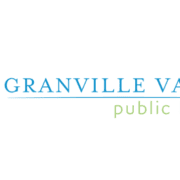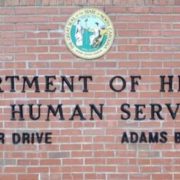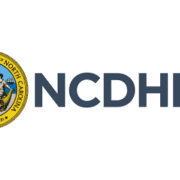— NCDHHS Press Release —
Children ages 6 months and older can now receive a safe and effective COVID-19 vaccine. The Centers for Disease Control and Prevention (CDC) recommends all children who are eligible receive a COVID-19 vaccine. The vaccine is available in North Carolina following the Food and Drug Administration’s (FDA) emergency use authorization and the CDC’s recommendation.
“Many parents and families have been eagerly awaiting a vaccine to protect our youngest North Carolinians,” said NCDHHS Secretary Kody H. Kinsley. “These vaccines are the best way to protect children from COVID-19 — they are safe, effective and free.”
Children ages 6 months to younger than 5 get a smaller vaccine dose than any other age group. This vaccine dose differs from the vaccine that was previously authorized for children ages 5 to 11. Booster shots are currently not authorized for children in this age group.
As with all routine vaccinations for children, these vaccines were tested and reviewed by the FDA and the CDC and their independent scientific committees to ensure they are safe for children. Results from ongoing clinical trials that began in March 2021 showed the Moderna and Pfizer COVID-19 vaccines were safe and effective to protect children ages 6 months to under 5 years from COVID-19. The Pfizer vaccine is currently authorized for three doses, while the Moderna will initially begin as two. Moderna is currently testing their third dose, with data expected this summer.
There were no safety concerns or serious side effects noted in the clinical trials for either vaccine.
The first wave of shipments is expected to arrive in North Carolina on June 20. NCDHHS recommends that parents and guardians contact their child’s pediatrician, medical provider, or local health department for more details on when the vaccine may become available. Call ahead to confirm the vaccine will be available before visiting a health care provider.
Children between the ages of 3 and 5 have the option of getting vaccinated at a pharmacy or grocery store in addition to a doctor’s office or local health center. Children under 3 years are not able to be vaccinated by a pharmacist. Parents and guardians of children who do not have an established medical provider can visit MySpot.nc.gov to search for a nearby vaccine provider.
Children may be able to get vaccinated for COVID-19 and other routine shots they are due for at the same visit. This is also a good time for them to get a routine checkup.
Children may experience temporary and minimal side effects. These side effects are similar to adults – a sore arm, headache and being tired or achy for a day or two.
According to the CDC, children under 5 had the highest rate of hospitalizations compared to other pediatric groups. COVID-19 cases in children can result in hospitalization, death, MIS-C (inflammation in different parts of the body) and long-term problems with symptoms that last for months. Vaccines will help reduce infections and transmission, bringing all North Carolinians closer to fewer family disruptions ahead of the summer months and school year.
Everyone ages 6 months and older can receive a free COVID-19 vaccine, even if they don’t have health insurance and regardless of their immigration status. Parents and guardians with questions about COVID-19 vaccines should talk with their child’s physician.
North Carolina’s actions are based on recommendations from the CDC. Read the CDC’s full statement here.
For more information about how vaccines for children work and where you can find a vaccination appointment nearby, visit MySpot.nc.gov. The North Carolina COVID-19 Vaccine Help Center can also help you make an appointment by calling 888-675-4567. The help center is open 7 a.m.-7 p.m. on weekdays and 8 a.m.-4 p.m. on weekends.
Las vacunas contra el COVID-19 para los niños de 6 meses hasta 5 años de edad estarán disponibles el 20 de junio
Los niños de 6 meses en adelante ahora pueden recibir una vacuna segura y efectiva contra el COVID-19. Los Centros para el Control y la Prevención de Enfermedades (CDC) recomiendan que todos los niños que sean elegibles reciban una vacuna contra el COVID-19. La vacuna está disponible en Carolina del Norte siguiendo la autorización de uso de emergencia de la Administración de Alimentos y Medicamentos (FDA) y la recomendación de los CDC.
“Muchas familias han estado esperando ansiosamente una vacuna para proteger a nuestros habitantes más pequeños de Carolina del Norte”, dijo el secretario del NCDHHS, Kody H. Kinsley. “Estas vacunas son la mejor manera de proteger a los niños contra el COVID-19: son seguras, efectivas y gratuitas”.
Los niños de 6 meses hasta 5 años de edad reciben una dosis de la vacuna más baja que cualquier otro grupo de edad. Esta dosis de vacuna es diferente a la vacuna que se autorizó anteriormente para niños de 5 a 11 años. Actualmente, las dosis de refuerzo no están autorizadas para niños en este grupo de edad.
Al igual que con todas las vacunas de rutina para niños, estas vacunas fueron probadas y revisadas por la FDA, los CDC, y sus comités científicos independientes para garantizar que sean seguras para los niños. Los resultados de los ensayos clínicos en curso que comenzaron en marzo de 2021 mostraron que las vacunas contra el COVID-19 de Moderna y de Pfizer eran seguras y efectivas para proteger a los niños de 6 meses hasta 5 años de edad contra el COVID-19. La vacuna de Pfizer está actualmente autorizada para tres dosis, mientras que la vacuna de Moderna se administrará inicialmente con dos dosis. Actualmente, Moderna está probando su tercera dosis, y se esperan resultados de esos estudios para este verano.
No se observaron problemas de seguridad ni efectos secundarios graves en los ensayos clínicos para ninguna de las vacunas.
Se espera que la primera orden de vacunas llegue a Carolina del Norte el 20 de junio. NCDHHS recomienda que las familias se comuniquen con el pediatra o proveedor médico de sus niños, o con el departamento de salud local para obtener más detalles sobre cuándo estará disponible la vacuna. Se motiva que llamen con anticipación para confirmar que la vacuna estará disponible antes de visitar a un proveedor de atención médica.
Los niños entre las edades de 3 y 5 años tienen la opción de vacunarse en una farmacia o un supermercado, además del consultorio de un médico o centro de salud local. Los niños menores de 3 años no pueden ser vacunados por un farmacéutico. Las familias de niños que no tienen un proveedor médico establecido pueden visitar Vacunate.nc.gov para buscar un centro de vacunación cercano.
Es posible que los niños puedan vacunarse contra el COVID-19 y otras vacunas de rutina que deben recibir al mismo tiempo. Este también es un buen momento para que se hagan un chequeo de rutina.
Los niños pueden experimentar efectos secundarios temporales y mínimos. Estos efectos secundarios son similares a los de los adultos: dolor en el brazo, dolor de cabeza y cansancio o dolor durante uno o dos días.
Según los CDC, los niños menores de 5 años tenían la tasa más alta de hospitalizaciones en comparación con otros grupos pediátricos. Los casos de COVID-19 en niños pueden resultar en hospitalización, muerte, MIS-C (que es una condición que causa inflamación en diferentes partes del cuerpo) y problemas a largo plazo con síntomas que duran meses. Las vacunas ayudarán a reducir las infecciones y la transmisión, acercando a todos los habitantes de Carolina del Norte a menos interrupciones familiares antes de los meses de verano y el comienzo del año escolar.
Todas las personas de 6 meses en adelante pueden recibir una vacuna contra el COVID-19 gratuitamente, incluso si no tienen seguro médico e independientemente de su estatus migratorio. Las familias que tengan preguntas sobre las vacunas contra el COVID-19 deben hablar con el médico de sus niños.
Las acciones de Carolina del Norte se basan en recomendaciones de los CDC. Lea la declaración completa de los CDC aquí (en inglés).
Para más información sobre cómo funcionan las vacunas para niños y dónde puede encontrar una cita de vacunación cercana, visite Vacunate.nc.gov. El Centro de Ayuda para la Vacunación contra el COVID-19 de Carolina del Norte también puede ayudarles a programar una cita llamando al 888-675-4567. El Centro de Ayuda está abierto de 7 a. m. a 7 p. m. de lunes a viernes y de 8 a. m. a 4 p. m. en los fines de semana.
CLICK PLAY!




